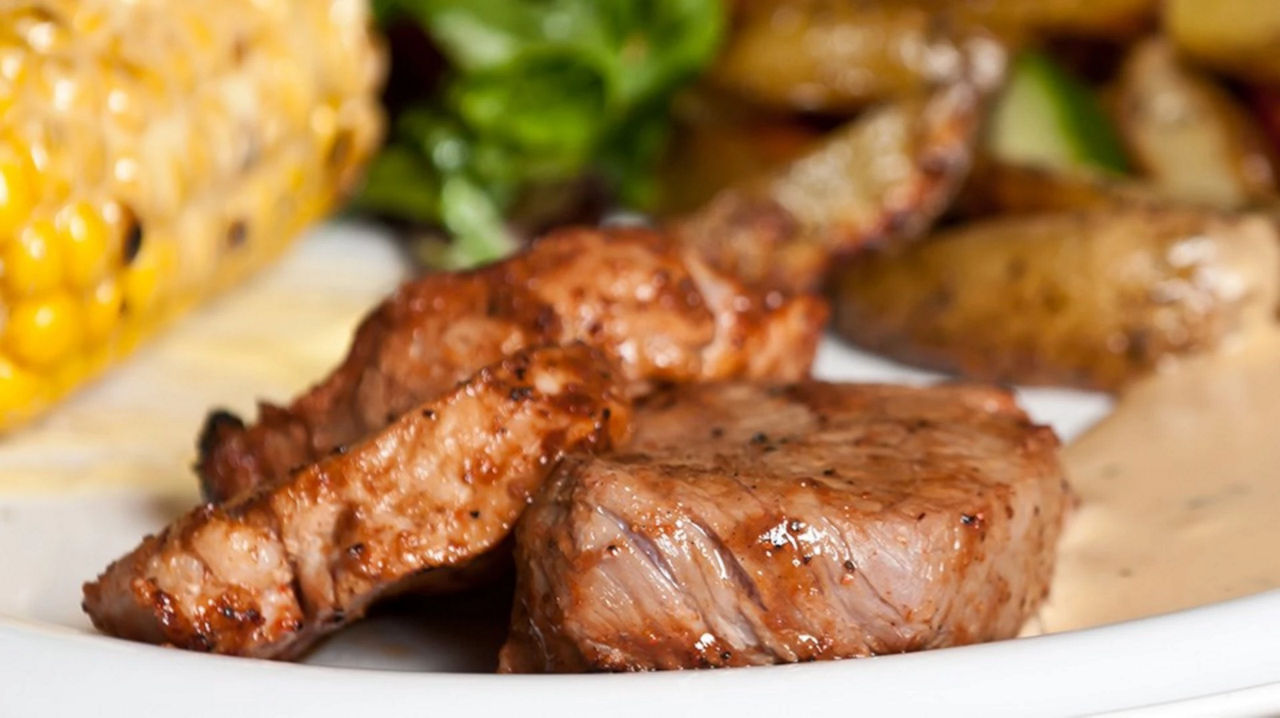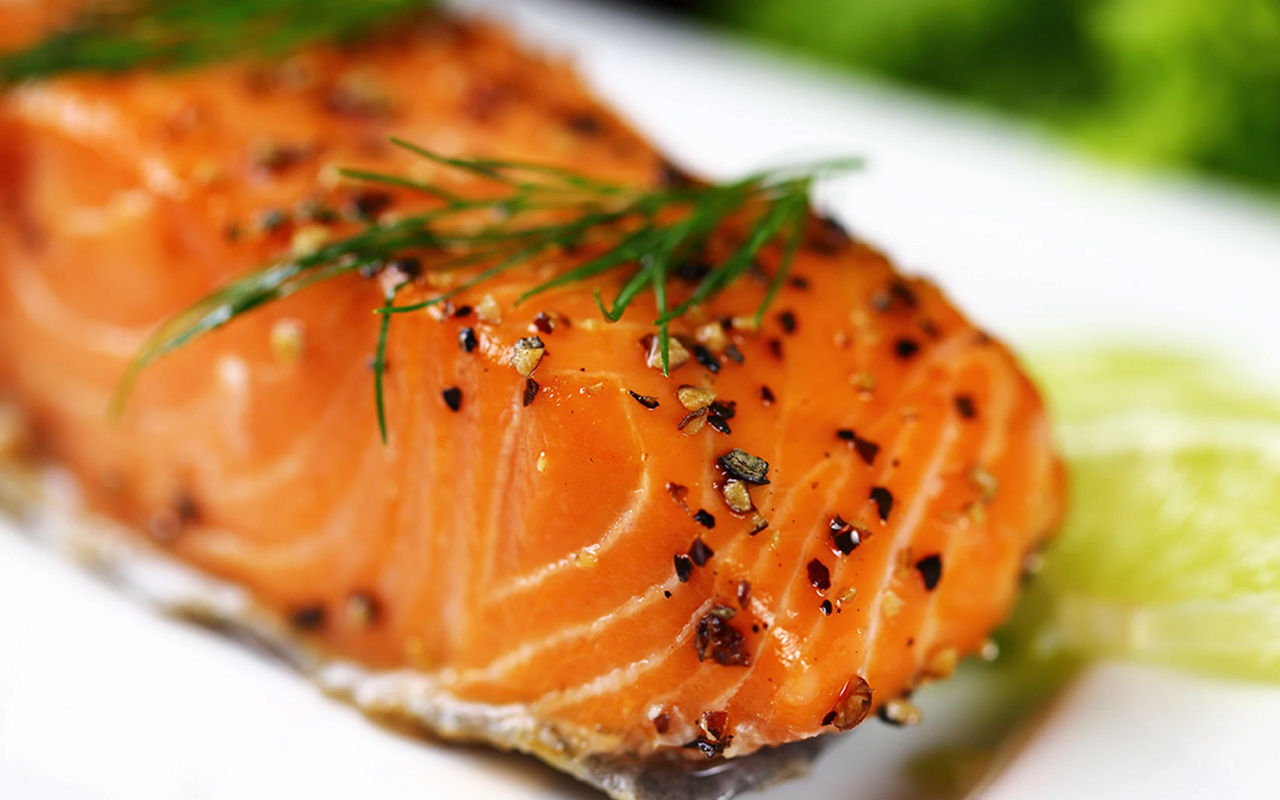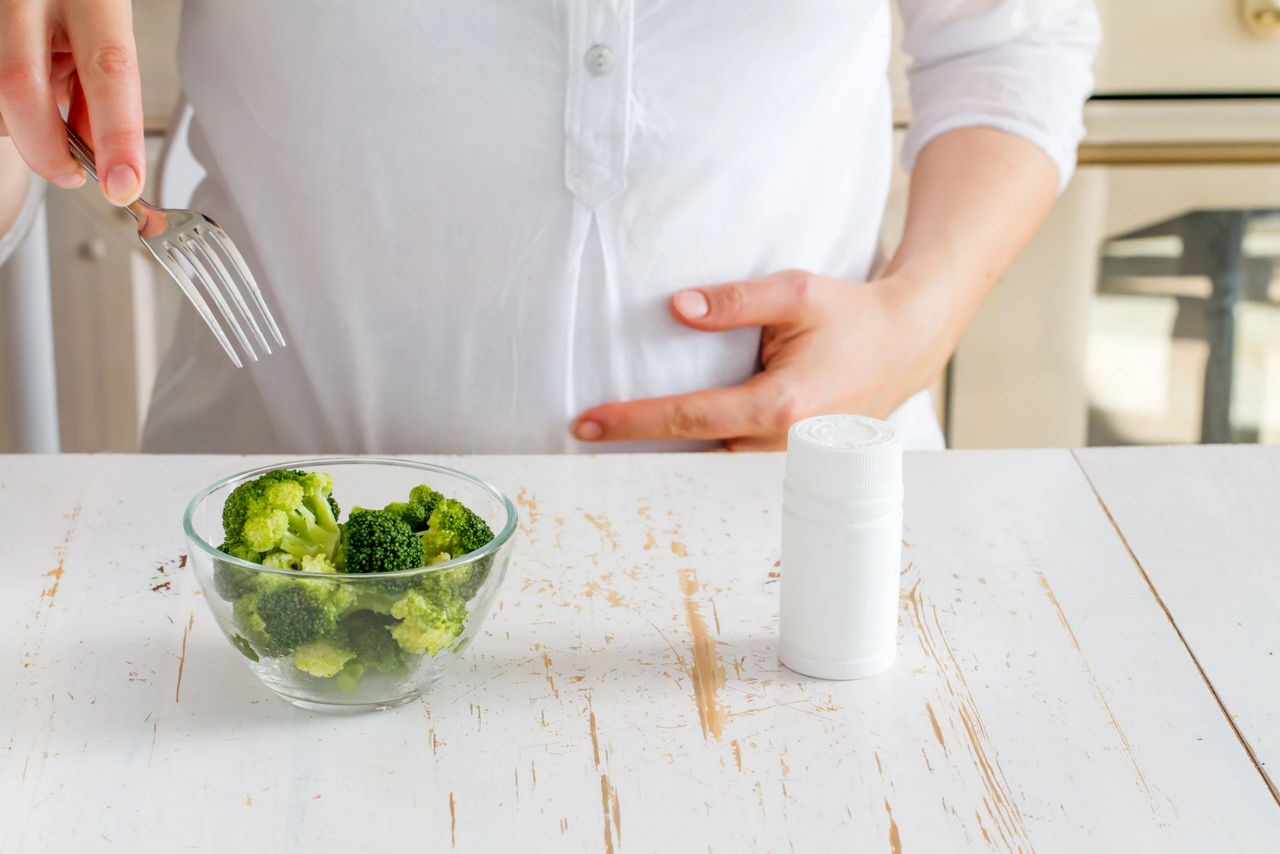Rich in protein, vitamins and minerals, meat can be a part of a healthy pregnancy diet. But it’s important to know which meats are safe to eat during pregnancy, and which are best to avoid. It’s also a good idea to refresh your knowledge on the safest way to prepare, store and cook meat, to reduce your risk of getting food poisoning.
Eating meat during pregnancy

Everything you need to know about eating meat during pregnancy
When it comes to eating meat during pregnancy, the key thing is to make sure that it’s always thoroughly cooked with no trace of pink or blood. Cooking meat thoroughly ensures that any harmful bugs – including those that cause toxoplasmosis – are killed off before you eat it.
Toxoplasmosis is an infection caused by a parasite found in raw and undercooked meat, among other things. It can cause serious complications, particularly early in pregnancy, which can lead to miscarriage.
After preparing raw meat, you should always wash your hands, surfaces and utensils thoroughly. Harmful bacteria can spread easily to anything it touches, including worktops, chopping boards and knives. Be particularly mindful to keep raw meat away from other ingredients, especially ‘ready to eat’ foods like bread, salad or fruit – these won’t be cooked before you eat them so any harmful bacteria they pick up won’t be killed.
The HSE advises that pre-cooked, pre-packaged meat such as ham and corned beef are safe to eat in pregnancy1.
You should be cautious eating any cold cured meat during pregnancy like salami, chorizo, pepperoni and Parma ham as they are just cured and fermented, rather than cooked. This means they could contain toxoplasmosis-causing parasites.
Freezing cold cured meat for four days before eating or cooking them thoroughly, like pepperoni on an oven-baked pizza, will kill most parasites, making the meat safer to eat2.
Pork, similarly to poultry and red meat, should not be eaten raw or undercooked. If you’re making a pork pie from scratch, be sure to cook the meat thoroughly, so it’s steaming hot with no trace of pink or blood. If you’re buying a pork pie, as long as the meat is pre-cooked it should be safe to eat1.
You can safely eat beef during pregnancy as long as it’s cooked thoroughly until it’s steaming hot with no trace of pink or blood. It’s not recommended to eat rare or undercooked beef1. Beef is a good source of protein during pregnancy and is recommended to be included as part of a healthy pregnancy diet.
Yes, just make sure that any smoked meat, such as smoked bacon or smoked ham, is cooked thoroughly with no trace of pink or blood.
The HSE recommends that you should avoid all types of pâté, including vegetable pâtés1, as it can contain listeria. Listeria can cause a rare infection called Listeriosis, which if left untreated, can lead to miscarriage2.
Liver contains a lot of vitamin A, which in high doses, can harm your unborn baby. It’s best to avoid eating liver and all products containing liver like pâté, sausages or haggis1. Learn more about Vitamin A in pregnancy.
Poultry such as chicken is high in protein and other essential vitamins and minerals3, Like other meat, it’s important to cook poultry thoroughly so it’s steaming hot with no traces of pink or blood.
Tips for restaurant eating
If you’re eating out, make sure you ask for any meat you order to be well-cooked, and avoid cold cured meat like those found on antipasti plates. Discover which other foods to avoid during pregnancy and which cheeses are safe to eat.
Related Topics
Read next

Get in touch with our Careline experts
Our nutritionists and feeding advisors are always on hand to talk about feeding your baby. So if you have a question, just get in touch
- NHS. Foods to avoid in pregnancy. [Online]. 2018. Available at: www.nhs.uk/conditions/pregnancy-and-baby/foods-to-avoid-pregnant/ [Accessed February 2020]
- NHS. Listeriosis [Online] Available at: www.nhs.uk/conditions/listeriosis/ [Accessed February 2020]
- NHS. Meat in your diet [Online] 2018. Available at : www.nhs.uk/live-well/eat-well/meat-nutrition/ [Accessed February 2020]
Last reviewed: 28th July 2020
Reviewed by Nutricia’s Medical and Scientific Affairs Team



